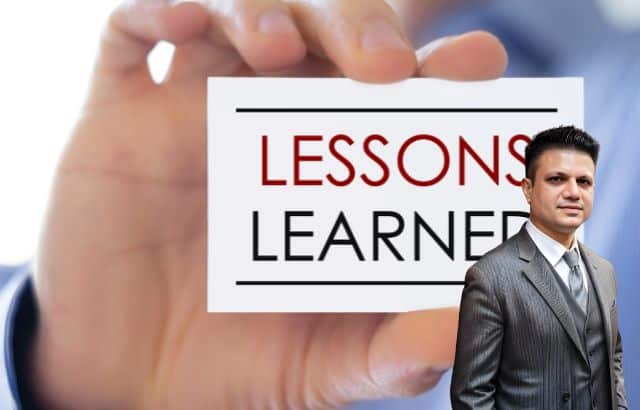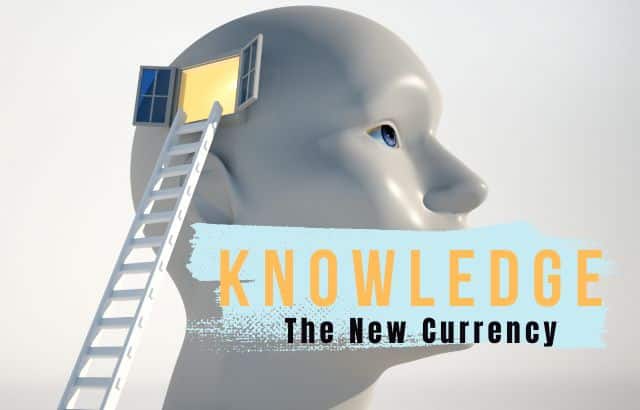Table of Contents
Invest in Knowledge – Why Knowledge is the New Currency

The beginning of a new year is always a great time to set fresh goals, create plans, and make predictions for a brighter future. In the quest for a better and brighter outcome, one thing stands tall—knowledge. It’s the fuel that drives progress and success, whether in life or business.
Knowledge is everything. It’s the power. It’s the new currency that allows you to participate in the conversations of today and tomorrow. In the world we live in, knowledge isn’t just important—it’s essential.
Take a look at India, a country poised to become the world’s largest workforce by the next decade. With the right knowledge, the youth can reach new heights, contributing to the country’s economic growth and the global knowledge economy.
Knowledge is the key to discovering new possibilities, to inventing or creating new abilities, and to transforming potential into reality. As technology evolves and data begins to shape the way humans and machines interact, knowledge is what enables us to keep up.
India, one of the world’s fastest-growing economies, has enormous potential to become a leading knowledge economy. However, this requires streamlined education systems, regulatory frameworks, and infrastructure improvements. More importantly, teaching methodologies need a rethink, focusing on creativity and critical thinking to ensure that knowledge is not just learned but applied.
How to Acquire More Knowledge for Startups and Businesses

Competencies—The Key to Success
The most critical competencies for any individual or organization to thrive are willingness to learn and curiosity. A continuous willingness to acquire new knowledge is essential in keeping pace with changing trends and evolving technologies. Whether you’re a business owner, startup founder, or employee, knowledge becomes the cornerstone of innovation and growth.
For businesses, it’s not just about having employees who know how to do the job—it’s about knowledge workers who bring creativity, problem-solving, and a forward-thinking mindset to the table. Analytical skills, communication skills, and problem-solving abilities complement these core competencies and are crucial for navigating the complexities of the modern business landscape.
Curriculum and Innovation in Learning
Educational curriculums need to focus on enhancing creativity and logical thinking. This prepares individuals, whether students or professionals, to apply their knowledge in real-world scenarios. Additionally, embracing online learning programs and distance learning is essential for continuous professional development.
In the context of business, knowledge needs to be leveraged not only for individual success but also for corporate growth. A well-informed workforce, equipped with the right tools and frameworks, is a powerful force that can propel a company forward.
From a Business Point of View: The Power of Knowledge

When it comes to business, the rule is simple: the more knowledge you have, the better your business will be. Knowledge leads to better decision-making, faster growth, and a more profitable business.
Take Apple as an example. Apple’s commitment to innovation, customer understanding, and constant knowledge sharing helped it build a business that changed the world. By investing heavily in market research, design thinking, and product knowledge, Apple was able to create groundbreaking products that consumers love.
With a deep understanding of their customers’ needs, businesses like Apple thrive. Employees, too, benefit from this culture of knowledge, as they are more likely to trust and feel valued in an organization that emphasizes continuous learning.
Knowledge Management Systems
For businesses to capitalize on the power of knowledge, it’s crucial to implement a knowledge management system (KMS). A KMS helps companies retain critical knowledge, share insights, and leverage the expertise of employees, creating a culture of collaboration and informed decision-making.
Example: IBM, one of the world’s most prominent tech companies, uses knowledge management systems to streamline operations, foster innovation, and improve customer service. By centralizing data and expertise, IBM has been able to maintain its leadership position in the tech industry.
FAQs:
Why is knowledge considered the new currency?
Knowledge empowers individuals and businesses to make informed decisions, innovate, and stay ahead in a rapidly changing world. It is an asset that cannot be stolen, devalued, or lost, making it more valuable than traditional forms of currency.
How can startups benefit from investing in knowledge?
Startups can use knowledge to understand market trends, anticipate customer needs, and build innovative solutions. A well-informed team is more agile, creative, and capable of overcoming challenges in competitive industries.
What role does education play in the knowledge economy?
Education is the foundation for acquiring knowledge. It prepares individuals for the demands of the knowledge economy by developing critical thinking, problem-solving skills, and technical expertise. The right education system also fosters innovation and creativity.
How can businesses ensure continuous knowledge growth?
Businesses can ensure continuous growth by investing in training programs, promoting a culture of learning, and implementing knowledge management systems that capture and share expertise across teams.
Interesting Stats:

Global Spending on Education: In 2021, global spending on education reached nearly $6 trillion. This figure is expected to grow at a CAGR of 4% until 2026, highlighting the increasing importance of education and knowledge acquisition.
India’s Workforce: By 2030, India is expected to have the largest workforce in the world, with over 1.1 billion people in the labor force. This presents an enormous opportunity for the country to invest in knowledge and skills development.
The Impact of Knowledge in Business: According to a study by McKinsey, businesses that implement knowledge management practices are 20% more likely to experience increased profitability compared to their competitors.
By recognizing knowledge as the new currency and investing in it, both individuals and businesses can create a brighter, more prosperous future.
Conclusion: Knowledge is the Ultimate Treasure
No burglar, however skillful, can rob you of your knowledge. That’s why knowledge is the safest and best treasure to acquire. In an increasingly complex world, knowledge isn’t just a tool for personal growth—it’s an asset for businesses, governments, and nations alike.
As knowledge becomes the new currency of the 21st century, there’s a need for robust mechanisms to share and utilize this resource. By investing in education, fostering creativity, and continually upgrading our knowledge, we can unlock the potential of individuals, organizations, and even entire nations.











